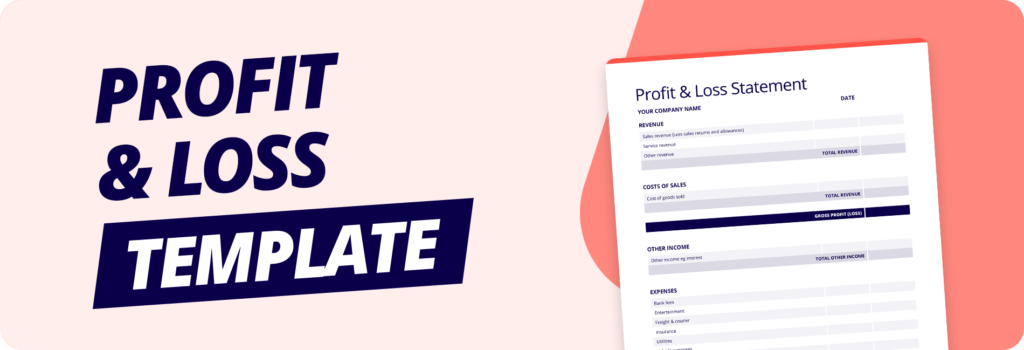TABLE OF CONTENTS
- Do you need to register for GST?
- GST concessions for not-for-profit organisations
- Grants, sponsorships and ‘material benefit’
- Claiming GST credits
- Cash basis option
- Non-profit sub-entities, GST groups and religious groups
- Should your BAS lodgement be monthly, quarterly or annually?
- What’s GST-free vs input taxed vs taxable?
If you run a charity, club, or community group, the goods and services tax (GST) can feel like a mishmash of dos and don’ts – GST-free this, input taxed that, BAS here, GST refunds there. The good news? Australian tax law gives not-for-profit organisations some amazing GST concessions that cut out the red tape and help you keep more cash for your charitable purpose.
Here’s what you need to know about when you have to pay GST, where you might be GST-free, and how to claim input tax credits, as well as the BAS lodgement options that could fit the way your organisation works.
Do you need to register for GST?
Most not-for-profits (NFPs) only need to be registered for GST when their GST turnover (not total income) is $150,000 or more. Below that, you can voluntarily register if it suits your operations, such as to claim GST credits on purchases. Remember, however, that some receipts don’t count towards GST turnover (for GST purposes) – think genuine gifts and donations with no material benefit to the donor.
Top tip: Once registered, you remit GST on taxable sales (your taxable supplies) and can claim GST credits for any GST paid on business purchases.
GST concessions for not-for-profit organisations

- Raffles and bingo: Tickets for a raffle or bingo event run by an eligible entity (e.g. endorsed charities, gift deductible entities or government schools) are GST-free, so long as your event doesn’t breach state/territory law.
- Fundraising events: Eligible entities can choose to treat certain fundraising events (dinners, balls, fetes, low-value sales, etc.) as input taxed – meaning you don’t charge GST and can’t claim credits on any related costs. Proceeds from these input-taxed events don’t count towards the annual turnover test for GST registration. Make sure to decide one way or the other before you start selling tickets.
- Non-commercial activities: For endorsed charities, gift deductible entities, and government schools, sales can be GST-free where the consideration is below market value or cost thresholds (for accommodation, that’s either less than 75% of market value or cost; for other supplies, it’s either less than 50% of market value or less than 75% of cost).
- School tuckshops/canteens: NFPs running a school tuckshop can choose to treat all food sales as input taxed.
- Donated second-hand goods: Sales by NFPs are GST-free (as long as the goods stay essentially the same as when donated).
- Gifts: True gifts (meaning voluntary, with no material benefit to the payer) are not considered for GST and are excluded from GST turnover. If a donor gets a material benefit – like a fundraising dinner seat – GST will apply to the full ticket price.
Grants, sponsorships and ‘material benefit’
Grants and sponsorship arrangements can be a little trickier to wrap your head around. If the funder gets a material benefit (advertising, reports, professional services, etc.), the payment might be consideration for a taxable supply and, subsequently, GST included will be required.
If it’s a genuine gift with no obligation? Then it’s not subject to GST.
Claiming GST credits
If you’re registered, you can already claim input tax credits on goods and services you buy to make taxable supplies. Below are two helpful concessions to remember:
- Volunteer expenses: If a volunteer buys an item directly related to their volunteer activity and your organisation reimburses them, you can claim GST credits – but only if it’s more than $82.50 and you hold the tax invoice.
- GST credit adjustments on gifts: If a business donates goods to your NFP, it doesn’t need to reverse any previously claimed GST credits on those items.
If you later find you’ve claimed credits incorrectly or how you use a particular item changes, then GST credit adjustments will most likely apply – so build a quick quarterly review into your tax system to catch these potential issues early on.
Cash basis option
Eligible registered charities and gift-deductible entities can account on a cash basis for GST – regardless of turnover – which can make your GST duties and cash flow much easier to manage (you report GST whenever you receive or make payments).
Non-profit sub-entities, GST groups and religious groups
Bigger organisations sometimes choose to separate different activities for GST purposes:
- Non-profit sub-entity election: You can run discrete activities (such as a café or op shop) as a non-profit sub-entity, so their GST status and reporting are ring-fenced.
- GST group: Various NFPs in the same NFP association can form a GST group without having to meet the 90% ownership test.
- GST religious groups: Two or more eligible charities can be approved by the Commissioner, so transactions within the group are outside the GST net.
Should your BAS lodgement be monthly, quarterly or annually?
It really comes down to the size of your organisation and whether you voluntarily register:
- Monthly: Required if GST turnover is $20 million or more (or if the ATO instructs you). Due date is the 21st of the following month.
- Quarterly: The default for most NFPs with turnover below $20 million. Standard deadlines are 28 October, 28 February, 28 April and 28 July.
- Annual GST reporting: If you voluntarily register (i.e. you’re under $150,000 and not required to register), you can choose to report and pay annually. The annual GST return is due at the same time as when your income tax return is due, or 28 February if you don’t lodge an income tax return.
What’s GST-free vs input taxed vs taxable?
- GST-free: You don’t charge GST, but you can claim GST credits. For example, plenty of exports/exported goods, certain medical aids, some course materials, some religious services, basic food, and non-commercial activities that meet thresholds. There’s no GST on the sale, and credits are usually available.
- Input taxed: You don’t charge GST and can’t claim credits on related costs (elections for fundraising events, school tuckshops, some financial supplies). While there’s no GST on the sale, it also means that credits aren’t available to you.
- Taxable: You charge 10% GST and then claim GST credits on related costs (think professional services, venue hire, merchandise, etc.).
Make sure your accounting software is set up to flag every activity correctly so that your financial statements match your GST obligations and your GST refunds are accurate. And when in doubt, always check the latest guidance from the Australian Taxation Office or speak to your accountant.













































